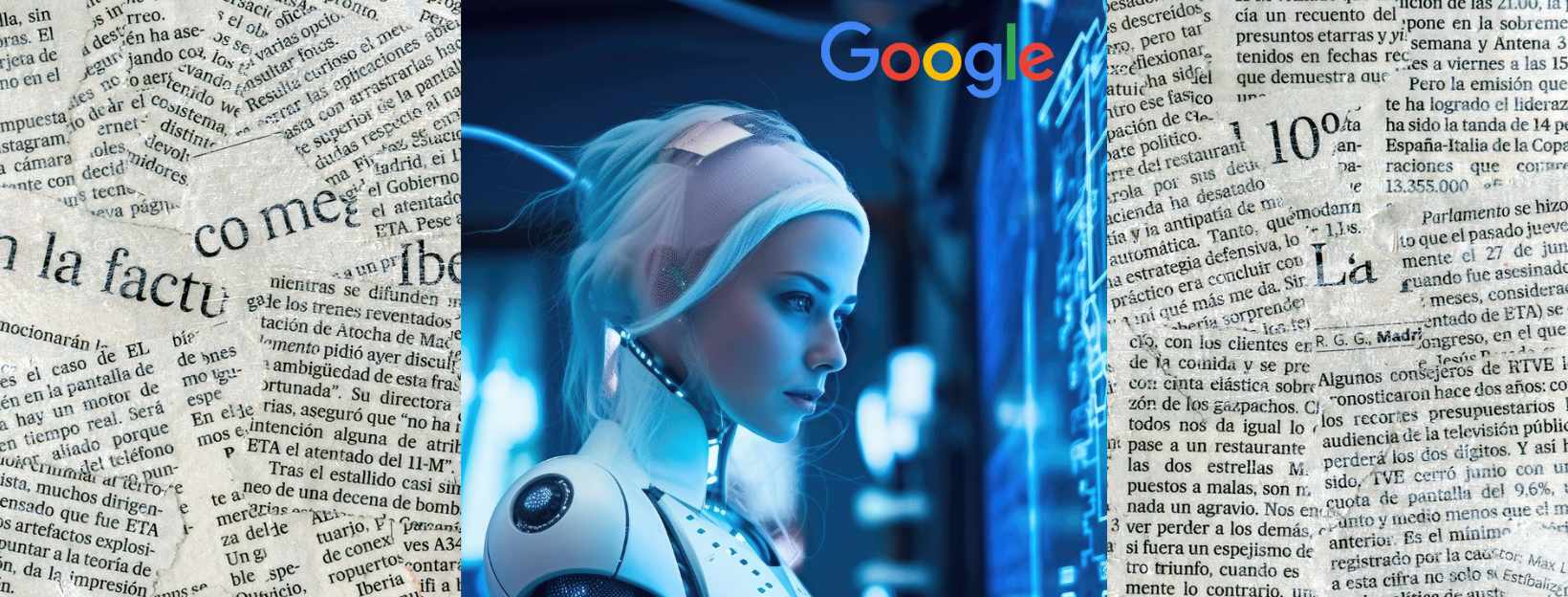Will Google neuter newspapers with artificial intelligence?

The introduction of artificial intelligence (AI) into Google's search engine will be the end of the news. An article from The Atlantic predicts this. Here because
“The world of Italian journalism is in an unprecedented crisis, forced to fight against a series of obstacles to maintain its vitality and continue to generate revenue.”
This is stated in an article in the Zeta magazine of the School of Journalism of Luiss University. The curious fact is that the text was produced using ChatGPT. In fact, the article is taken from an issue entirely written and illustrated by artificial intelligence (AI).
The piece talks about how to avoid the Armageddon of Italian journalism, according to ChatGPT. The chatbot, in addition to dispensing advice to publishers, then describes its ideal newspaper model capable of surviving the crisis.
However, what an article in The Atlantic quoted by the Wall Street Journal predicted goes even further. The authors argue that Google will benefit from the crisis of publishers and the advent of artificial intelligence, which by integrating the technology into its search engine will steal all, or almost all, readers from newspapers.
THE SURVIVAL OF NEWSPAPERS IN THE HANDS OF WEB TRAFFIC
As ChatGPT wrote, “many newspapers rely too heavily on traditional advertising to generate revenue.” And advertising goes hand in hand with site traffic.
“I know that my digital newspaper could face difficulties in competing with big search engines like Google for online visibility,” ChatGPT himself stated in his piece, recalling the difficulty of a new site appearing among the first results.
BUT WHAT IS THE PROBLEM OF THE UNION BETWEEN GOOGLE AND AI?
About 40% of The Atlantic 's web traffic comes from searches carried out on Google, from which the user then chooses to click on the link. But if the most used search engine in the world were integrated with AI, in 75% of cases – states a study conducted by the magazine – the technology itself would probably provide a complete answer to the user's question and the site would lose its traffic that it would otherwise have gotten.
This is why, shortly after the launch of ChatGPT, The Atlantic had included Google's adoption of this technology among the greatest threats that AI can represent for its newspaper.
PUBLISHERS' NIGHTMARE IS NOW REALITY
Publishers feared it might happen, but now they're almost certain it will. In addition to being working on an AI tool capable of writing and publishing news articles, since May, the WSJ recalls, Google has been testing Search Generative Experience on a group of around 10 million users, an artificial intelligence product which, without provide the timing, he would like to insert into his search engine.
If newspapers have already had to deal with a significant drop in traffic caused by the retreat of Meta and % of publisher traffic worldwide.
HOW PUBLISHERS ARE TRYING TO TAKE COVERAGE
If you can't defeat your enemy, make him your friend. This seems like the philosophy adopted by some publishers who don't want to end up unemployed, or in poverty. But the saying mors tua vita mea also fits perfectly.
Proof of this is the recent agreement signed by the German publisher Axel Springer which, after having fired more than half of the employees of its news agency Upday , allied itself with OpenAI to train ChatGPT with the contents of its publications, which include Welt , Bild , Politico and Business Insider . Last July , the Associated Press also signed the same type of partnership with Sam Altman's AI company.
Other publishers, however, have already relied on AI for their content. This is the case of News Corp (owner of the Wall Street Journal ), which is reportedly using the technology to produce 3,000 news stories a week in its Australian version. Furthermore, just like the New York Times , writes the WSJ , it already has commercial relationships with Google.
NOTHING GOOD COULD COME FROM A CONVENIENCE MARRIAGE
The relationship between Google and publishers, the WSJ observes, has always been a difficult marriage, held up by the tacit agreement according to which "Google helps publishers to be found by readers and publishers provide Google with information – millions of pages of web content – to make your search engine useful."
Now, however, "according to publishing executives, Google's adoption of artificial intelligence in search risks upsetting this delicate balance" and "the most irritating thing", they say, is precisely that "AI search Google has been trained, in part, on their content and other material from around the web, without any payment for use.”
A strategy that for some "contains [from Google, ed. ] an implicit threat: let us train you on your content or it will be difficult to find you on the Internet".
Others, however, argue that “if Google kills too many publishers, it won't be able to build its large language model (LLM)”, which is the basis of chatbots.
This is a machine translation from Italian language of a post published on Start Magazine at the URL https://www.startmag.it/innovazione/google-castrera-i-giornali-con-lintelligenza-artificiale/ on Fri, 15 Dec 2023 15:09:14 +0000.
